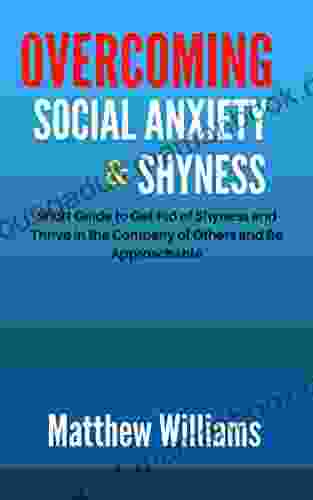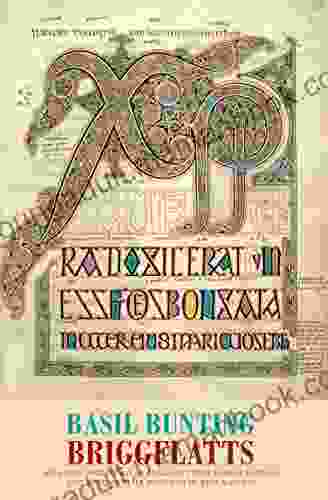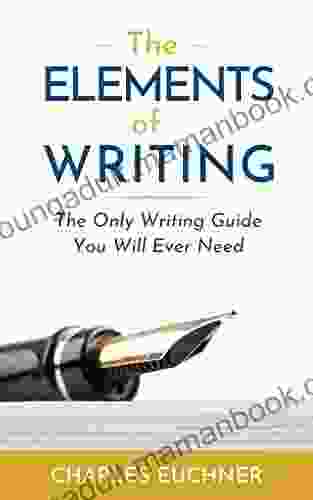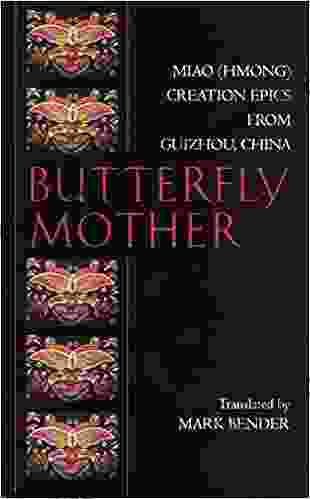The Yalta Conference Protocol of 11 February 1945: A Detailed Examination of Its Key Provisions

The Yalta Conference, held in the Soviet city of Yalta from February 4 to 11, 1945, was a pivotal event in the closing stages of World War II. The conference brought together the leaders of the three major Allied powers: United States President Franklin D. Roosevelt, British Prime Minister Winston Churchill, and Soviet Premier Joseph Stalin. The conference resulted in the signing of the Yalta Protocol, a document that outlined the agreements reached by the three leaders on a wide range of issues related to the postwar world order.
One of the key provisions of the Yalta Protocol was the agreement to establish the United Nations. The United Nations was envisioned as a global organization that would promote international cooperation, prevent future wars, and protect human rights. The Yalta Protocol also included agreements on the postwar borders of Europe, the demilitarization of Germany, and the establishment of a new international economic order.
5 out of 5
| Language | : | English |
| File size | : | 132 KB |
| Text-to-Speech | : | Enabled |
| Screen Reader | : | Supported |
| Enhanced typesetting | : | Enabled |
| Word Wise | : | Enabled |
| Print length | : | 12 pages |
| Lending | : | Enabled |
The Yalta Protocol was a significant document that had a major impact on the postwar world order. However, the protocol also contained a number of controversial provisions that have been the subject of debate ever since it was signed. One of the most controversial provisions was the agreement to divide Germany into four zones of occupation, each controlled by one of the Allied powers. This provision was seen by many as a violation of German sovereignty and a potential source of future conflict.
Another controversial provision of the Yalta Protocol was the agreement to hold free and fair elections in Poland. This provision was seen by many as a betrayal of Poland's sovereignty and a violation of the Yalta Declaration on Liberated Europe, which had pledged to restore self-government to the countries liberated from Nazi occupation.
The Yalta Protocol was a complex and controversial document that had a major impact on the postwar world order. The protocol's provisions have been the subject of debate ever since it was signed, and the protocol's legacy remains a matter of historical controversy.
Key Provisions of the Yalta Conference Protocol
The Yalta Conference Protocol contained a number of key provisions, including:
- The establishment of the United Nations
- The division of Germany into four zones of occupation
- The demilitarization of Germany
- The establishment of a new international economic order
- The holding of free and fair elections in Poland
These provisions had a major impact on the postwar world order. The establishment of the United Nations created a global organization that has played a vital role in promoting international cooperation and preventing future wars. The division of Germany into four zones of occupation led to the creation of two separate German states, East Germany and West Germany. The demilitarization of Germany prevented Germany from rebuilding its military and becoming a threat to its neighbors. The establishment of a new international economic order helped to promote global economic recovery and development. The holding of free and fair elections in Poland was intended to restore self-government to Poland and to prevent the country from falling under Soviet domination.
Controversy over the Yalta Protocol
The Yalta Protocol has been the subject of debate ever since it was signed. Some historians have argued that the protocol was a necessary compromise that helped to prevent a wider war between the Allied powers. Others have argued that the protocol was a betrayal of the principles of democracy and self-determination.
One of the most controversial provisions of the Yalta Protocol was the agreement to divide Germany into four zones of occupation. This provision was seen by many as a violation of German sovereignty and a potential source of future conflict. The division of Germany led to the creation of two separate German states, East Germany and West Germany, which were separated by the Berlin Wall for over 40 years.
Another controversial provision of the Yalta Protocol was the agreement to hold free and fair elections in Poland. This provision was seen by many as a betrayal of Poland's sovereignty and a violation of the Yalta Declaration on Liberated Europe, which had pledged to restore self-government to the countries liberated from Nazi occupation. The Soviet Union prevented the holding of free and fair elections in Poland, and the country remained under Soviet domination for over 40 years.
The Yalta Protocol was a complex and controversial document that had a major impact on the postwar world order. The protocol's provisions have been the subject of debate ever since it was signed, and the protocol's legacy remains a matter of historical controversy.
Legacy of the Yalta Conference Protocol
The Yalta Conference Protocol had a lasting impact on the postwar world order. The protocol's provisions helped to shape the political, economic, and security architecture of the postwar world. The protocol's legacy is still felt today, as the world continues to grapple with the challenges of international cooperation, nuclear proliferation, and the prevention of future wars.
The Yalta Conference Protocol is a complex and controversial document that has had a major impact on the world. The protocol's provisions have been the subject of debate ever since it was signed, and the protocol's legacy remains a matter of historical controversy. However, there is no doubt that the Yalta Conference Protocol was a pivotal event in the closing stages of World War II and that its provisions continue to shape the world in which we live today.
5 out of 5
| Language | : | English |
| File size | : | 132 KB |
| Text-to-Speech | : | Enabled |
| Screen Reader | : | Supported |
| Enhanced typesetting | : | Enabled |
| Word Wise | : | Enabled |
| Print length | : | 12 pages |
| Lending | : | Enabled |
Do you want to contribute by writing guest posts on this blog?
Please contact us and send us a resume of previous articles that you have written.
 Top Book
Top Book Novel
Novel Fiction
Fiction Nonfiction
Nonfiction Literature
Literature Paperback
Paperback Hardcover
Hardcover E-book
E-book Audiobook
Audiobook Bestseller
Bestseller Classic
Classic Mystery
Mystery Thriller
Thriller Romance
Romance Fantasy
Fantasy Science Fiction
Science Fiction Biography
Biography Memoir
Memoir Autobiography
Autobiography Poetry
Poetry Drama
Drama Historical Fiction
Historical Fiction Self-help
Self-help Young Adult
Young Adult Childrens Books
Childrens Books Graphic Novel
Graphic Novel Anthology
Anthology Series
Series Encyclopedia
Encyclopedia Reference
Reference Guidebook
Guidebook Textbook
Textbook Workbook
Workbook Journal
Journal Diary
Diary Manuscript
Manuscript Folio
Folio Pulp Fiction
Pulp Fiction Short Stories
Short Stories Fairy Tales
Fairy Tales Fables
Fables Mythology
Mythology Philosophy
Philosophy Religion
Religion Spirituality
Spirituality Essays
Essays Critique
Critique Commentary
Commentary Glossary
Glossary Bibliography
Bibliography Index
Index Table of Contents
Table of Contents Preface
Preface Introduction
Introduction Foreword
Foreword Afterword
Afterword Appendices
Appendices Annotations
Annotations Footnotes
Footnotes Epilogue
Epilogue Prologue
Prologue Nichole Mcelhaney
Nichole Mcelhaney Sara Ackerman
Sara Ackerman Stephan Talty
Stephan Talty Joel Solomon
Joel Solomon Maggie Hess
Maggie Hess Julian Bound
Julian Bound Allen Manning
Allen Manning Travis Baldree
Travis Baldree Sam Chaltain
Sam Chaltain Roger Mcgough
Roger Mcgough Oscar Serrallach
Oscar Serrallach Lauren Henkel
Lauren Henkel Susan Orlean
Susan Orlean Vivek Kamath
Vivek Kamath Amanda Hanna
Amanda Hanna Bhavesh Ranipa
Bhavesh Ranipa Olivia Clark
Olivia Clark Allison M Boot
Allison M Boot Rosalind James
Rosalind James Molly Maco
Molly Maco
Light bulbAdvertise smarter! Our strategic ad space ensures maximum exposure. Reserve your spot today!
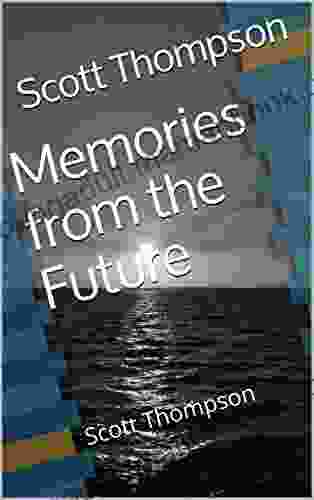
 Fernando BellMemories From the Future: Unraveling the Mysteries of Past, Present, and Yet...
Fernando BellMemories From the Future: Unraveling the Mysteries of Past, Present, and Yet... George R.R. MartinFollow ·10.9k
George R.R. MartinFollow ·10.9k Anthony BurgessFollow ·17.4k
Anthony BurgessFollow ·17.4k Shaun NelsonFollow ·11.7k
Shaun NelsonFollow ·11.7k Brett SimmonsFollow ·9.9k
Brett SimmonsFollow ·9.9k David Foster WallaceFollow ·5.3k
David Foster WallaceFollow ·5.3k Samuel WardFollow ·12.3k
Samuel WardFollow ·12.3k Mark TwainFollow ·16.1k
Mark TwainFollow ·16.1k Vic ParkerFollow ·4.8k
Vic ParkerFollow ·4.8k
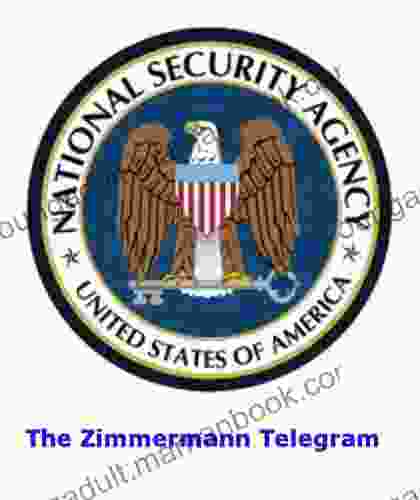
 Yukio Mishima
Yukio MishimaUnveiling the Zimmermann Telegram: A Pivotal Document in...
The Zimmermann Telegram, a diplomatic...
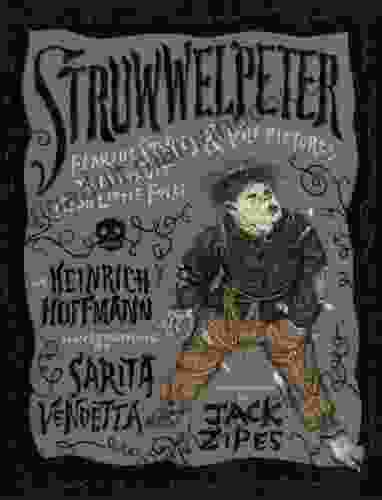
 George Martin
George MartinFearful Stories and Vile Pictures to Instruct Good Little...
In the annals of children's literature, few...

 Grant Hayes
Grant HayesJessica the Viscount Wallflower: A Tale of Transformation...
In the opulent ballrooms and glittering...
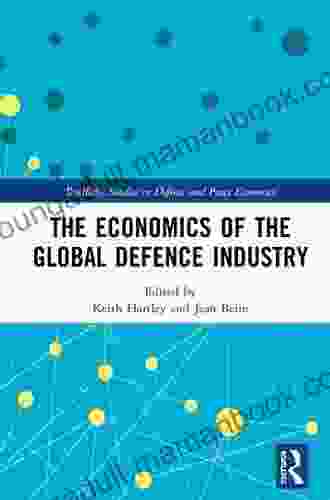
 Jerome Blair
Jerome BlairThe Economics of the Global Defence Industry: A...
The global...
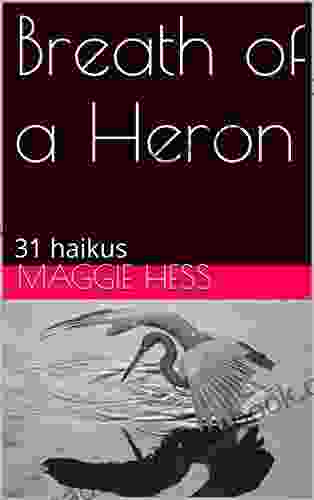
 Blake Kennedy
Blake KennedyBreath of Heron - A Window into the Poetic Depths of...
In the realm of...
5 out of 5
| Language | : | English |
| File size | : | 132 KB |
| Text-to-Speech | : | Enabled |
| Screen Reader | : | Supported |
| Enhanced typesetting | : | Enabled |
| Word Wise | : | Enabled |
| Print length | : | 12 pages |
| Lending | : | Enabled |



